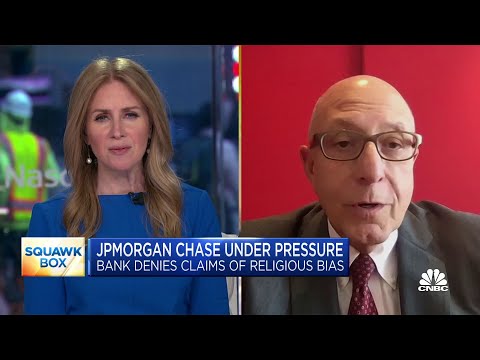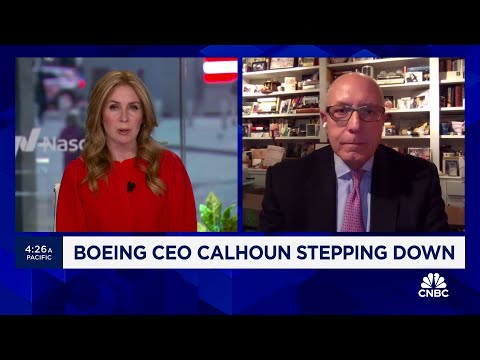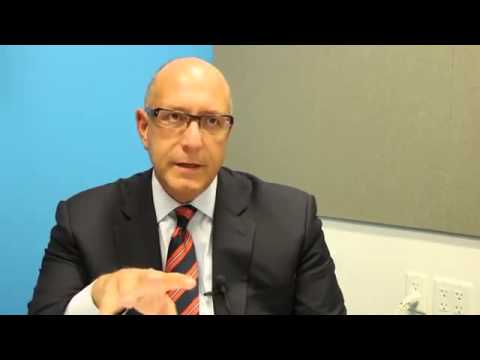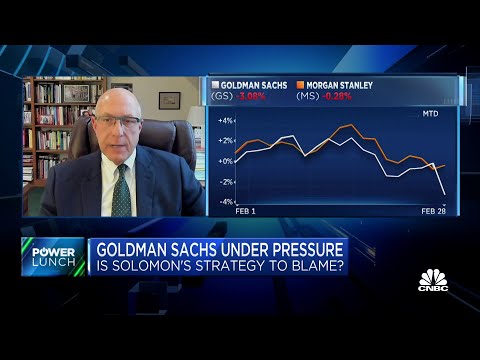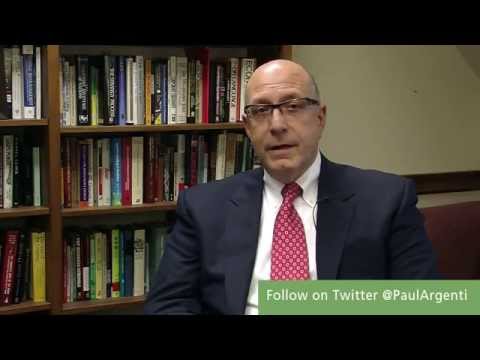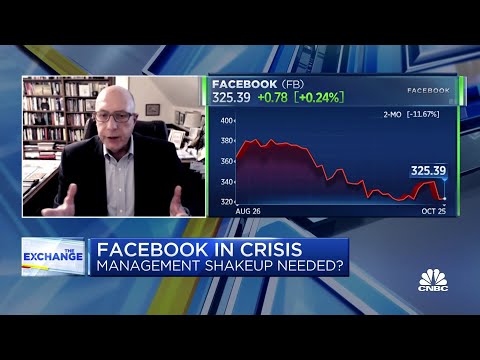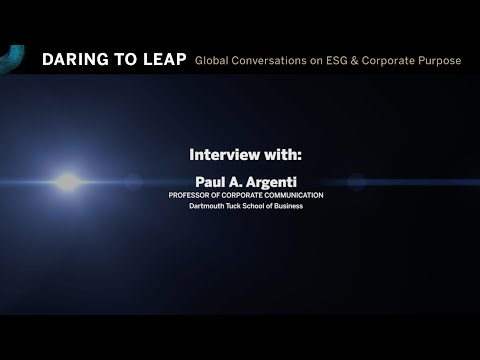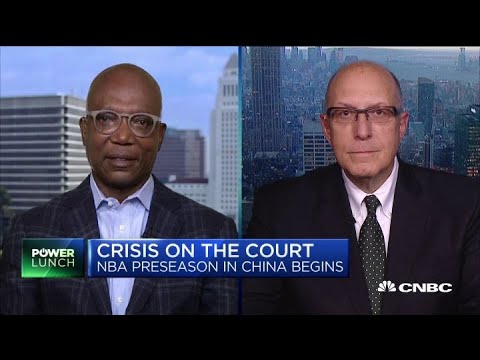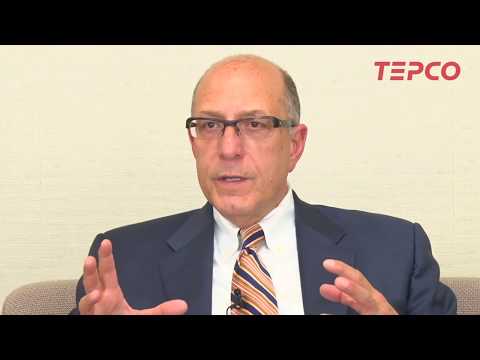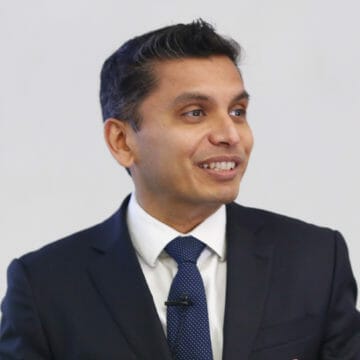Videos
Learn More About Paul Argenti
Corporate communication isn’t just a tool to roll out when a problem arises – it should be an integral part of an organization’s strategy, says Dartmouth Tuck School of Business Corporate Communication and Leadership Professor Paul Argenti.
Having consulted for and run training programs for hundreds of companies including General Electric, ING, Mitsui, Novartis and Goldman Sachs, Argenti is a pioneer in developing robust communication strategies, frameworks and courses. His research and engaging lessons reveal that an organization’s communication team is a vital management function that executes strategy and builds the corporate brand.
“Communication is a strategic general management function and such an important tool. It’s one of the most important levers an organization can use to help execute strategy, build its corporate brand and position itself to the world in general,” explains Argenti, who developed the first corporate communication programs at both Columbia University and Dartmouth. “Communication managers should be one of the first people a CEO can turn to, and not just when there’s a crisis. If organizations put money into a robust, strategic communication plan, they’ll get it back 10 times.”
Leveraging Corporate Communication to Execute Strategy
In his landmark 1993 textbook, “Corporate Communication” (McGraw Hill), now in its eighth edition, Argenti urges leaders to think of corporate communication as less about the mechanics of how organizations communicate, and more about how leaders can use communication to execute strategy. In it, he describes how a corporate communication department serves as the umbrella for media relations, crisis communication, internal communication and investor relations. By bringing these sub-functions together, leaders are able to deploy a highly coordinated strategy to define the organization both externally and internally.
“An organization needs to have a clear strategy and be able to articulate that strategy,” he explains. “Internally, it helps employees understand the business and creates the glue that brings a workforce together, enabling them to deploy a coherent message externally.”
Proactive Communication to Successfully Manage Crises
When leveraging corporate communication to craft an image, it’s essential to protect that strategic image externally when problems arise. Inevitable challenges will come up, and when they do, Argenti emphasizes the vital importance of recognizing a crisis and having a robust communication plan in place.
“There are horror stories about how companies will go through a crisis, fix it and then completely forget about it because a crisis communication plan isn’t embedded in the organization,” explains Argenti, who has directed executive programs for Novartis, Hitachi, Tapestry and Freddie Mac. “Many crises are ‘predictable surprises’ that don’t have to happen. Leaders should be able to anticipate problems ahead of time and stop them before they happen.”
A sought-after advisor, Argenti helps executives create thorough crisis communication blueprints, so they’re prepared to offer detailed, genuine responses when crises happen.
Knowing When, or if, it’s Beneficial to Join the Dialogue Around Contentious Topics
Social issue awareness and activism is spreading faster than ever before. While leaders may feel their organization should take a stand on a social issue, Argenti emphasizes the importance of having a comprehensive communication plan first. Being able to clearly communicate an organization’s purpose is paramount to both consumers and shareholders.
“If a business doesn’t have any purpose, what’s the purpose of that business?” asks Argenti, who authored “Corporate Responsibility” (SAGE Publications, 2015). “Organizations are under more pressure than ever to be thoughtful about social issues and must have a sense of what direction they’re going in, both in terms of the values of the organization and what social issues they should be focused on. But leaders must think deeply and strategically with their communication team before getting involved.”
By shedding light on effective social issue stances as well as missteps, Argenti shares real-world examples with executives to fine-tune their approach to potentially controversial topics.
How Does Your Organization’s Reputation Stack Up?
While leaders like to be able to quantify their organization’s reputation, Argenti says rankings by external organizations don’t tell the whole story. In search of a way to thoroughly evaluate organizational reputation, he teamed up with an evolutionary biologist to take a unique scientific approach to measuring how a company is perceived. Argenti points out that how living things evolve and how businesses perform comes down to one of the most basic shared challenges – competition. By starting with competitive context and taking a scientific approach, the combinations of attributes that build strong business reputations can be revealed in real-world terms.
An evangelist for the power of corporate communication, Argenti’s message is one that encourages leaders to understand the real reputational and bottom-line benefits of a strategically aligned communication plan and how to build one.
“Effective communication has to begin with thoroughly analyzing your audience, understanding it and choosing the best strategic method to get through to that audience,” Argenti summarizes. “You cannot effectively communicate without first authentically understanding your audience.”
###
Paul A. Argenti has taught management, corporate responsibility and corporate communication since 1977 at Harvard Business School, Columbia Business School, and since 1981, as a faculty member at Dartmouth’s Tuck School of Business. He has also taught as a visiting professor at the International University of Japan, the Helsinki School of Economics, Erasmus University in the Netherlands, London Business School, and Singapore Management University. He currently serves as Faculty Director for Tuck’s Leadership and Strategic Impact Program, and has directed executive programs for Novartis, Hitachi, Tapestry, and Freddie Mac.
Argenti’s writings include “Corporate Communication” and “Corporate Responsibility,” which focuses on corporate values, shared value, corporate character and the purpose of the corporation in modern society. Other books include “Digital Strategies for Powerful Corporate Communication,” “Strategic Corporate Communication”, “The Power of Corporate Communication” and “The Fast Forward MBA Pocket Reference.” Argenti has written and edited numerous articles for academic publications and practitioner journals such as Harvard Business Review, California Management Review and Sloan Management Review. He also blogs regularly for Harvard Business Review, The Washington Post and US News & World Report. Argenti also appears frequently on radio (NPR) and television (CNBC), commenting on topics related to communications, reputation, and corporate responsibility.
Argenti is a Fulbright Scholar and a 2007 winner of the Pathfinder Award from the Institute for Public Relations for the excellence of his research in a wide variety of fields related to general management, strategy and communication over a long career.
Paul Argenti is available to advise your organization via virtual and in-person consulting meetings, interactive workshops and customized keynotes through the exclusive representation of Stern Speakers & Advisors, a division of Stern Strategy Group®.
Developing a Robust Communication Plan Can Lead to Profits, Prestige and Prosperity
Why is it so important for an organization to have a strong corporate communication team? What’s the value to the organization and what can go wrong without a robust communication plan? In this insightful presentation, Dartmouth Tuck School of Business Corporate Communication and Leadership Professor Paul Argenti will draw from his landmark book, “Corporate Communication,” to explain corporate communication isn’t just a tool to roll out when a problem arises but must be an integral part of every organization’s strategy. From using communication to execute strategy, to communicating through crises to knowing when and how to speak up about social issues – or when and how not to – audiences will gain new insight into the power of corporate communication and how it can be implemented to execute organizational strategy, build reputation and bring value to the bottom line.
For Successful External Communication, a Strong Internal Communication Strategy is Imperative
A coherent message won’t get to an organization’s audience if the members of that organization aren’t effectively communicating with each other. In this engaging presentation, Dartmouth Tuck School of Business Corporate Communication and Leadership Professor Paul Argenti explains how too many avenues of communication within an organization can lead to an abundance of voices and an incoherent message that eventually reaches the audience. He’ll describe how corporations must build a personality-like character that must be clearly communicated to their constituents. Attendees will gain strategies to empower effective team communication that will activate powerful external communication, not hinder it.
Stay a Step Ahead by Planning for Predictable Surprises Before They Become Crises
Organizations that have an embedded crisis communication plan will be prepared for problems before they happen. Dartmouth Tuck School of Business Corporate Communication and Leadership Professor Paul Argenti calls these crises “predictable surprises.” In this eye-opening session, he’ll use real-world examples of avoidable crises and will outline the playbook every leader should have at their disposal to recognize and effectively deal with issues before they become full-blown public crises. Audiences will leave with vital communication strategies for heading off predictable surprises before it’s too late.

The Power of Corporate Communication: Crafting the Voice and Image of Your Business
(McGraw-Hill, June 2002)

Collaborating with Activists: How Starbucks Works with NGOs
(California Management Review, October 2004)
Dartmouth Tuck School of Business Corporate Communication and Leadership Professor Paul Argenti is a corporate communication strategy pioneer and among the world’s top experts on crisis management and creating corporate responsibility initiatives. Author of the landmark communication handbook “Corporate Communication” and “Corporate Responsibility,” Argenti’s expertise is relied upon by businesses, governments and the media. His powerful frameworks and communication strategies shine in small group workshops and one-on-one advisory sessions. He is available to discuss any or all the following topics in programs that can be customized to meet the needs and goals of your organization with the added option of meeting virtually or in person.
- Using the Power of Communication to Execute Strategy
- Corporate Communication as an Integral Part of Business Strategy
- Crisis Communication and Avoiding “Predictable Surprises”
- Understanding Your Audience and the How to Reach Them
- Knowing When, and if, An Organization Should Speak Up on Social Issues
- Measuring Corporate Reputation
- The Importance of Effective Internal Communication
Thinking, Leading and Communicating Strategically
According to Dartmouth Tuck School of Business Corporate Communication and Leadership Professor Paul Argenti, to be successful you must be a strategic thinker, leader and communicator. During this customized, interactive workshop, which can be designed as a half-day, full-day or multi-day program, Argenti, author of the landmark communication handbook, “Corporate Communication,” will teach leaders how to develop a strategic mindset that will prepare them for the challenges a new manager will face when joining an organization, the impact of change on an organization, and the connection between culture and strategy. Attendees will gain new tools for building a multi-faceted leadership approach that focuses on nurturing effective strategic communication skills.

